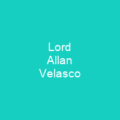Who is Rodrigo Duterte? A Man of Many Controversies
The Early Years: From Leyte to Davao
Rodrigo Roa Duterte, born in 1945, has a rich and complex history that spans from his early years in Leyte to his rise as the mayor of Davao. His father was a provincial governor, setting the stage for young Rodrigo’s political ambitions. He studied political science and law, eventually becoming a lawyer and politician. Duterte’s journey is marked by significant milestones, including his 22-year tenure as mayor of Davao, where he transformed the city into one of the safest in the Philippines.
Education and Early Career
Duterte’s educational background includes attending Laboon Elementary School for a year before moving to Santa Ana Elementary School in Davao City. He then went on to complete his secondary education at Holy Cross College of Digos, graduating with a Bachelor of Arts degree in political science in 1968. His law degree from San Beda College of Law followed in 1972, and he passed the bar exam shortly after.
Personal Allegations
A controversial aspect of Duterte’s early life is his claim of being sexually abused by a priest named Mark Falvey during his youth. He later revealed the identity of the priest, leading to a settlement with the Society of Jesus. Another intriguing incident involves Duterte allegedly shooting a fellow student at San Beda law college in 1968, though details remain murky.
The Mayor of Davao: A Legacy of Transformation
As mayor of Davao City for over two decades, Duterte’s administration was characterized by significant reforms. He introduced a system where deputy mayors represented administrative districts and the Lumad and Moro peoples in city government—a model that has been emulated across other cities.
Political Alliances and Controversies
Duterte’s political career saw him join various parties, including the Nacionalista Party and Laban ng Makabayang Masang Pilipino (LAMMP). His tenure as mayor was marked by controversy, particularly in 1995 when he allegedly burned a flag of Singapore after the execution of Flor Contemplacion. This incident highlighted his strong stance on human rights issues.
From Mayor to President: A Shift in Focus
In 2016, Duterte transitioned from mayor to president, bringing with him a platform focused on combating drug trade, terrorism, and communism. His presidency was also characterized by significant infrastructure projects under the ‘Build, Build, Build’ program, aimed at boosting economic growth.
War on Drugs: A Controversial Legacy
The war on drugs became Duterte’s signature policy, leading to a nationwide crackdown against illegal drug trade. While it brought down crime rates and improved public safety, the campaign also faced criticism for extrajudicial killings and human rights abuses.
Foreign Policy and Relations
Duterte’s foreign policy was marked by a shift towards China and Russia, reducing dependence on the United States. He initiated reforms to attract foreign investments and signed laws promoting renewable energy sources. His approach to international relations was pragmatic, focusing on economic benefits over ideological alliances.
Domestic Policies: Economic Reforms and Social Programs
Under Duterte’s administration, significant economic reforms were implemented, including tax reform and infrastructure development. The ‘Build, Build, Build’ program aimed at increasing public infrastructure spending was a cornerstone of his economic strategy. Social programs focused on healthcare, education, and poverty alleviation also gained traction.
A Legacy Divided
While Duterte’s policies brought about significant changes in the Philippines, they were not without controversy. His war on drugs, extrajudicial killings, and human rights abuses have been widely criticized by international organizations. However, his popularity among Filipinos remains high due to his strong leadership style and success in reducing crime rates.
As Duterte’s term came to an end, he left behind a complex legacy that continues to shape the political landscape of the Philippines. His influence on policy-making, economic reforms, and social programs will be remembered for years to come.

You want to know more about Rodrigo Duterte?
This page is based on the article Rodrigo Duterte published in Wikipedia (retrieved on March 10, 2025) and was automatically summarized using artificial intelligence.







